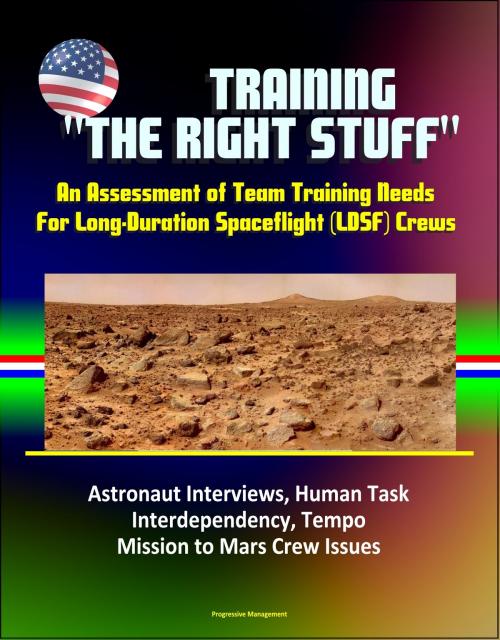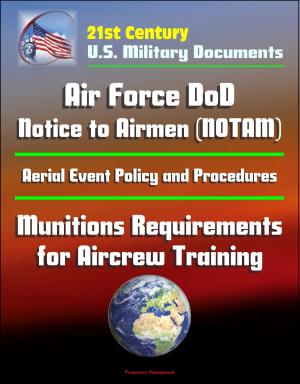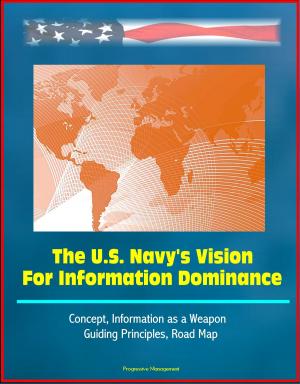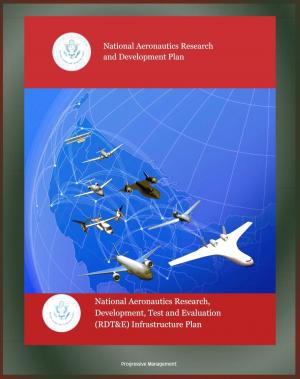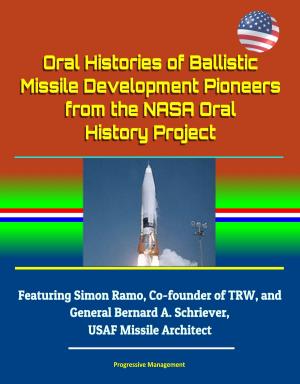Training "The Right Stuff": An Assessment of Team Training Needs For Long-Duration Spaceflight (LDSF) Crews - Astronaut Interviews, Human Task Interdependency, Tempo, Mission to Mars Crew Issues
Nonfiction, Science & Nature, Technology, Aeronautics & Astronautics, Science, Physics, Astrophysics & Space Science| Author: | Progressive Management | ISBN: | 9781310970153 |
| Publisher: | Progressive Management | Publication: | April 9, 2016 |
| Imprint: | Smashwords Edition | Language: | English |
| Author: | Progressive Management |
| ISBN: | 9781310970153 |
| Publisher: | Progressive Management |
| Publication: | April 9, 2016 |
| Imprint: | Smashwords Edition |
| Language: | English |
This excellent report has been professionally converted for accurate flowing-text e-book format reproduction. The current report is the first in a three-part series that describes a team training needs analysis conducted for long-duration spaceflight (LDSF) crews. The ultimate goals of the overall needs analysis effort are to: (a) identify unique factors associated with the tasks, team member characteristics, and the organizational environment likely to affect LDSF team training needs; (b) identify opportunities to leverage prior team training research and development efforts conducted using team types that share common task, team member, and organizational characteristics; and, (c) specify directions for future training research and development efforts that will be needed in order to best prepare for future extreme long-duration missions. The present report details the first part of our training needs analysis. This component is dedicated to identifying characteristics of the task environment LDSF crews face that are both unique to this type of team and are expected to have a significant impact on team competency requirements and the strategies used to address those training needs based on prior research. The current report is organized into four sections. First, we synthesize literature indicating the major categories of team task characteristics that have been shown to moderate team training requirements and effectiveness. Second, we describe the methods used to interview twelve National Aeronautics and Space Administration (NASA) astronauts during the months of February and June 2010. Third, we identify five task characteristics associated with LDSF crews that were derived from transcripts of the interviews conducted that are both unique to this type of team relative to other teams operating in high-risk environments and are expected to impact team training requirements. Fourth, we identify the specific team competency requirements that should be impacted by these unique characteristics and discuss the manner in which they are expected to be affected. Finally, we identify research questions that should be answered in order to inform the development of strategies designed to address these unique team training needs.
Executive Summary * 1.0 Purpose and Background * 1.1 Training Needs Analysis Defined * 2.0 Moderators of Team Training Effectiveness: Review of the Existing Literature * 2.1 Task-related Moderators * 2.1.1 Task Interdependence * 2.1.2 Task Variability * 2.1.3 Teammate Variability * 2.1.4 Team Composition / Diversity * 2.2 Summary * 3.0 Subject Matter Expert Interviews * 3.1 Method * 3.1.1 Sample * 3.1.2 Procedure * 3.1.3 Transcription and Coding * 3.2 Results * 3.2.1 LDSF Team Task Characteristic 1: Variation in Task Interdependency * 3.2.2 LDSF Team Task Characteristic 2: Variability in Task Type and Tempo * 3.2.3 LDSF Team Task Characteristic 3: Variation in Teammate Familiarity * 3.2.4 LDSF Team Task Characteristic 4: Team Diversity * 3.2.5 LDSF Team Task Characteristic 5: Intense Isolation and Confinement * 3.3. Summary * 4.0 Recommended Directions for Training Research and Development * 4.1 Team Competency Needs Affected by Unique LDSF Team Task Characteristics * 4.1.1 Task-generic, Teammate-generic Training Requirements * 4.1.2 Task-specific, Teammate-generic Training Requirements * 4.1.3 Task-specific, Teammate-specific Training Requirements * 4.1.4 Task-generic, Teammate-specific Training Requirements * 4.2 Candidate Training Strategies * 4.2.1 Task-generic, Teammate-generic Competencies * 4.2.2 Task-specific, Teammate-generic Competencies * 4.2.3 Task-specific, Teammate-specific Competencies * 4.2.4 Task-generic, Teammate-specific Competencies * 4.3 Summary * 5.0 Conclusions and Next Steps * References
This excellent report has been professionally converted for accurate flowing-text e-book format reproduction. The current report is the first in a three-part series that describes a team training needs analysis conducted for long-duration spaceflight (LDSF) crews. The ultimate goals of the overall needs analysis effort are to: (a) identify unique factors associated with the tasks, team member characteristics, and the organizational environment likely to affect LDSF team training needs; (b) identify opportunities to leverage prior team training research and development efforts conducted using team types that share common task, team member, and organizational characteristics; and, (c) specify directions for future training research and development efforts that will be needed in order to best prepare for future extreme long-duration missions. The present report details the first part of our training needs analysis. This component is dedicated to identifying characteristics of the task environment LDSF crews face that are both unique to this type of team and are expected to have a significant impact on team competency requirements and the strategies used to address those training needs based on prior research. The current report is organized into four sections. First, we synthesize literature indicating the major categories of team task characteristics that have been shown to moderate team training requirements and effectiveness. Second, we describe the methods used to interview twelve National Aeronautics and Space Administration (NASA) astronauts during the months of February and June 2010. Third, we identify five task characteristics associated with LDSF crews that were derived from transcripts of the interviews conducted that are both unique to this type of team relative to other teams operating in high-risk environments and are expected to impact team training requirements. Fourth, we identify the specific team competency requirements that should be impacted by these unique characteristics and discuss the manner in which they are expected to be affected. Finally, we identify research questions that should be answered in order to inform the development of strategies designed to address these unique team training needs.
Executive Summary * 1.0 Purpose and Background * 1.1 Training Needs Analysis Defined * 2.0 Moderators of Team Training Effectiveness: Review of the Existing Literature * 2.1 Task-related Moderators * 2.1.1 Task Interdependence * 2.1.2 Task Variability * 2.1.3 Teammate Variability * 2.1.4 Team Composition / Diversity * 2.2 Summary * 3.0 Subject Matter Expert Interviews * 3.1 Method * 3.1.1 Sample * 3.1.2 Procedure * 3.1.3 Transcription and Coding * 3.2 Results * 3.2.1 LDSF Team Task Characteristic 1: Variation in Task Interdependency * 3.2.2 LDSF Team Task Characteristic 2: Variability in Task Type and Tempo * 3.2.3 LDSF Team Task Characteristic 3: Variation in Teammate Familiarity * 3.2.4 LDSF Team Task Characteristic 4: Team Diversity * 3.2.5 LDSF Team Task Characteristic 5: Intense Isolation and Confinement * 3.3. Summary * 4.0 Recommended Directions for Training Research and Development * 4.1 Team Competency Needs Affected by Unique LDSF Team Task Characteristics * 4.1.1 Task-generic, Teammate-generic Training Requirements * 4.1.2 Task-specific, Teammate-generic Training Requirements * 4.1.3 Task-specific, Teammate-specific Training Requirements * 4.1.4 Task-generic, Teammate-specific Training Requirements * 4.2 Candidate Training Strategies * 4.2.1 Task-generic, Teammate-generic Competencies * 4.2.2 Task-specific, Teammate-generic Competencies * 4.2.3 Task-specific, Teammate-specific Competencies * 4.2.4 Task-generic, Teammate-specific Competencies * 4.3 Summary * 5.0 Conclusions and Next Steps * References
